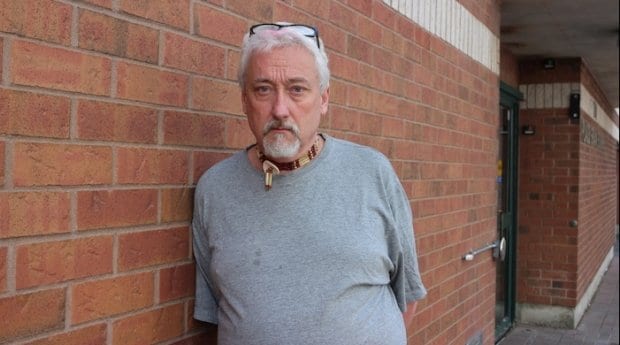Alan Gemmill was visiting a friend in Centretown on May 6 when three men on the street targeted him with a barrage of homophobic slurs.
Gemmill says he was approaching a community housing property on MacLaren Street between 11am and noon to go shopping with his friend when he heard homophobic slurs from two male tenants who were outside.
He turned to them and said, “Hey, I’m gay.” They responded and said that’s why they were talking that way, Gemmill says. They made comments like “You take it up the ass” and “You guys are all dying of AIDS,” he says.
Gemmill buzzed his friend, who lives in the building. By then a third man had joined in on the verbal abuse, and Gemmill says he decided to respond to them.
“I said, ‘Most of the haters are homos themselves,’ and boy, did it ever ramp up then,” he says. “At this point [one of them] said I should die of AIDS and that he was going to hit me.”
The men didn’t hit him and his friend came downstairs. Gemmill says he phoned the Ottawa Police Service (OPS) as well as a tenant community worker but wasn’t happy with the response. He says he was left with the impression that nothing would be done.
Staff Sergeant Shaun Brabazon wasn’t the police officer Gemmill spoke to, but Xtra contacted him because Brabazon is a member of the diversity and race-relations unit and is also police vice-chair of the OPS GLBT liaison committee.
“It’s completely unacceptable to make verbal taunts or homophobic remarks or racist remarks, but that’s not a criminal offence,” Brabazon says. “Somebody using inappropriate language and being rude, disrespectful and homophobic — that’s not a criminal offence on its own.”
In order for an incident to be considered a hate crime, it first has to be a criminal offence. For example, if a person committed assault and it was proven in court the assault was motivated by hate, then the judge could classify it as a hate crime and impose a tougher sentence.
It isn’t unusual for community members to be unsure of the difference between a hate incident and a hate crime, which is one of the reasons the GLBT liaison committee focused on hate crimes at its information exchange last year, Brabazon says.
Although police are unable to lay charges based solely on racist or homophobic slurs, community members do have other options. On the OPS website, police provide advice for people who have experienced a hate incident.
“Incidents such as workplace or school harassment, refusal of service by certain companies or landlords because of who you are should not be dismissed,” the OPS website’s hate-crimes section reads. “You may have recourse. Human rights commissions and internal policies in institutions are often overlooked and can help you resolve issues before they become criminal in nature.”
Gemmill has an appointment with a tenant community worker on May 13 to discuss the incident. He says he also plans to file a complaint with the Ontario Human Rights Commission.
“It’s never happened to me before,” Gemmill says. “It scared the bejesus out of me.”


 Why you can trust Xtra
Why you can trust Xtra


